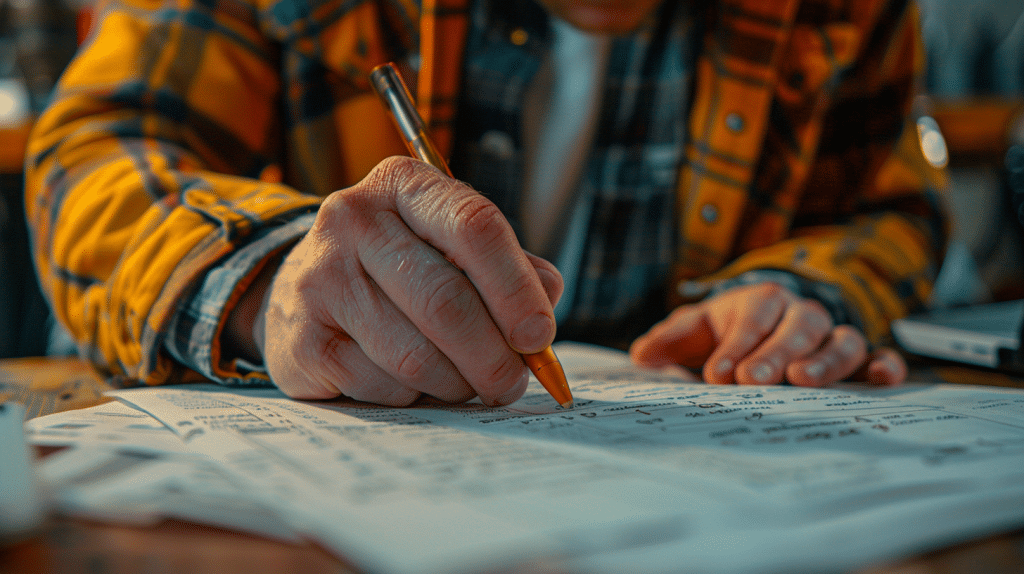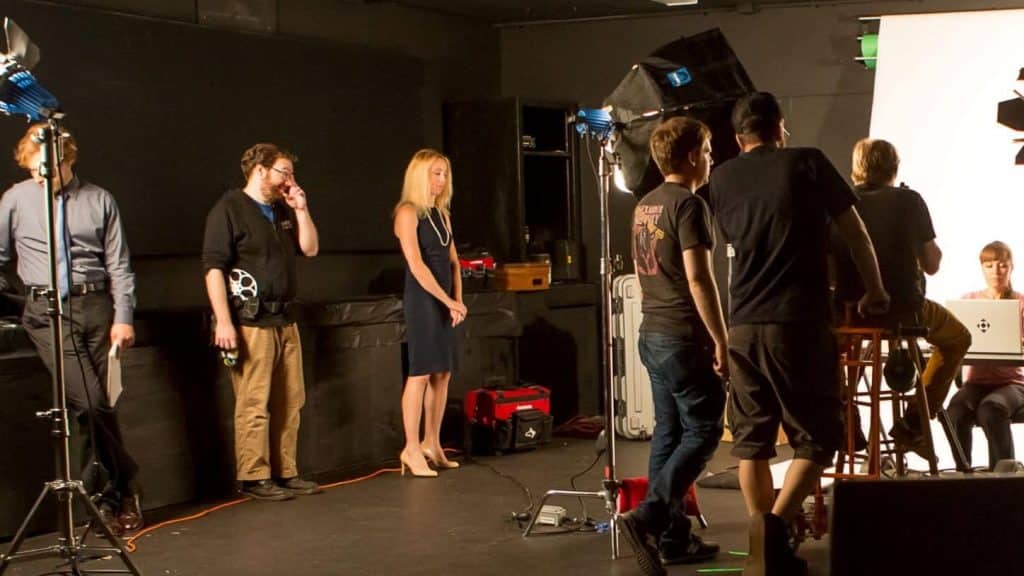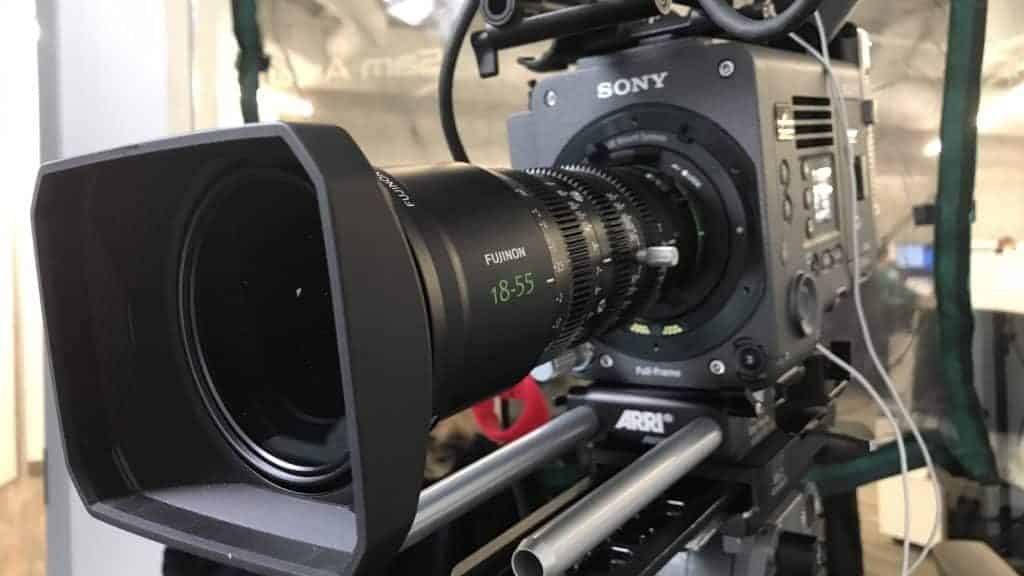10 Essential Tips for Effective Pre-Production Planning in Filmmaking

When initiating a filmmaking journey, the foundation of your project lies in meticulous pre-production planning.
From defining your objectives to rehearsing thoroughly, each step is pivotal in shaping the success of your film.
Whether you are a seasoned filmmaker or a novice in the industry, these essential tips for pre-production planning will pave the way for a seamless and impactful production process.
So, let’s begin with the first key tip: defining your objectives.
Table of Contents
Define Your Objectives
Before diving into your filmmaking project, clearly outline your goals and intentions to lay a solid foundation for your pre-production planning.
Defining your objectives is vital, as it will guide every decision you make throughout the filmmaking process.
Start by asking yourself what you aim to achieve with your film. Are you looking to tell a compelling story, evoke specific emotions, or showcase your technical skills?
By identifying your primary objectives, you can tailor your pre-production planning to make certain that every aspect of your film aligns with your overarching goals.
Consider the genre and tone of your film when defining your objectives. Whether you’re aiming for a comedy, drama, horror, or documentary, each genre requires a different approach in terms of storytelling, visuals, and sound.
Clearly outlining your objectives will also help you communicate your vision effectively to your team, ensuring that everyone is on the same page from the start.
Remember, a well-defined objective is the cornerstone of a successful filmmaking project.
Develop the Script

Embarking on script development is the foundational step in bringing your filmmaking vision to life, setting the stage for the creative journey ahead.
As you immerse yourself in script development, start by outlining the key plot points, character arcs, and thematic elements that will drive your story forward. Define the tone and style you want to convey, ensuring consistency throughout the narrative.
When developing dialogue, focus on creating authentic conversations that reveal character motivations and advance the plot. Consider incorporating visual cues and action descriptions to enhance the storytelling experience. Pay attention to pacing, ensuring that each scene propels the story forward while maintaining audience engagement.
Collaborate with a script supervisor or fellow filmmakers to gather feedback and refine your script. Embrace constructive criticism as a tool for growth and improvement.
Remember, a well-crafted script forms the backbone of your film, guiding the entire production process towards a successful outcome.
Budget Preparation
To effectively plan your film project, meticulously analyze and strategize your budget preparation.
Start by outlining all potential expenses, such as equipment rentals, location fees, permits, crew salaries, and post-production costs. Research current market rates to make sure your budget is realistic and thorough. Consider setting aside contingency funds for unforeseen expenses to avoid budget overruns.
Create a detailed spreadsheet breaking down each line item to track expenses accurately. Be diligent in negotiating deals with vendors and crew members to get the best value for your money.
Prioritize essential elements of your film to allocate funds accordingly, ensuring that the most critical aspects receive adequate financial support.
Remember to factor in marketing and distribution costs when planning your budget. Building a strong financial foundation for your project is vital for its success.
By carefully managing your budget preparation, you set the stage for a smooth production process and a successful final product.
Assemble Your Team

When assembling your team for the film project, focus on finding individuals whose skills and expertise align with the specific needs of your production.
Start by identifying key roles such as director of photography, art director, sound designer, and editor. Look for professionals with a proven track record in these areas to guarantee a smooth production process.
Consider the size and scope of your project when determining the size of your team. For smaller productions, you may need team members who can wear multiple hats and handle various responsibilities. On the other hand, larger projects may require a more specialized team with distinct roles and responsibilities.
Communication is key when assembling your team. Make sure that all members are on the same page regarding the project’s vision, goals, and timeline. Regular team meetings can help keep everyone informed and ensure that the production stays on track.
Lastly, don’t forget about the importance of personality fit. A cohesive team that works well together can make all the difference in the success of your film project.
Cast Your Actors
Selecting the right actors for your film is an essential step in bringing your story to life and engaging your audience.
Begin by defining the characteristics and personalities of each character. Look for actors who not only fit the physical descriptions but also embody the emotional depth needed for the role.
Conduct auditions where you can observe how well they interpret the character and interact with others. Chemistry reads between potential co-stars can also give insight into how the dynamics will play out on screen.
Consider the experience of the actors; seasoned professionals may bring a level of expertise that enhances your production. However, newer talents can offer fresh perspectives and enthusiasm.
Be open-minded during casting, as sometimes unexpected choices can lead to remarkable performances. Remember, the actors you choose will be the faces of your film, so take the time to select individuals who resonate with the essence of your story.
Location Scouting

Starting the journey of location scouting sets the stage for the visual backdrop that will bring your film to life.
As a filmmaker, finding the perfect locations is vital for the overall look and feel of your movie.
Here are some key tips to keep in mind during the location scouting process:
- Understand Your Vision: Before you start scouting, have a clear understanding of the visual aesthetic you want to achieve. Knowing the look and feel you’re aiming for will help you narrow down potential locations more effectively.
- Consider Logistics: While aesthetics are important, practicality is also important. Think about the logistics of each location, such as accessibility, parking, permits, and whether it can accommodate your crew and equipment.
- Visit Multiple Options: Don’t settle for the first location you find. It’s important to explore multiple options to make sure you find the perfect fit for each scene. Visiting different locations will also give you a better sense of what each one has to offer in terms of lighting, framing, and overall atmosphere.
Schedule Shoot Dates
Plan your shoot dates meticulously to guarantee a smooth and efficient production process.
Start by creating a detailed shooting schedule that outlines when and where each scene will be filmed. Consider factors like actor availability, location permits, and equipment rentals when setting your shoot dates. It’s crucial to allocate enough time for each scene to make sure that you capture all the necessary shots without feeling rushed.
When scheduling your shoot dates, take into account the time of day each scene will be filmed. If you have outdoor scenes, consider the position of the sun for best lighting. Additionally, factor in any special effects or stunts that may require specific lighting conditions.
Be prepared for unexpected delays by building buffer days into your schedule. Weather, technical issues, or unforeseen circumstances can impact your shoot, so having extra time can help you stay on track.
Communicate clearly with your cast and crew about the shoot dates well in advance. This allows everyone to plan their schedules accordingly and ensures that you have the necessary manpower on set.
By meticulously planning your shoot dates, you set the stage for a successful and stress-free production.
Secure Equipment

To guarantee a seamless pre-production process, acquiring the necessary equipment is vital for a successful filmmaking endeavor.
Securing the right tools won’t only help you bring your creative vision to life but also ensure that your production runs smoothly.
Here are some key points to ponder when securing equipment:
- Make a Detailed Equipment List: Start by creating an exhaustive list of all the equipment you’ll need for your shoot, including cameras, lighting, sound equipment, tripods, and any other gear specific to your project.
- Quality Check and Test Equipment: Before the shoot, it’s important to inspect all equipment to confirm everything is in working order. Testing the gear beforehand can help prevent any technical issues during filming.
- Backup Plan: Always have a contingency plan in case any equipment malfunctions. Consider renting duplicate essential items to avoid delays in production if something goes wrong.
Plan Logistics
Begin orchestrating the intricate details of your production by meticulously arranging the logistical framework for your filmmaking project.
Plan out the transportation of your crew and equipment to different locations, ensuring smooth shifts between shoots. Coordinate schedules, making sure everyone knows call times, locations, and any changes that may occur. Create a detailed shot list and schedule to optimize time and resources efficiently.
Consider the practical aspects of your shoot, such as permits, insurance, and any legal requirements. Make a list of necessary props, costumes, and set decorations, ensuring they’re available and in good condition before the shoot dates. Anticipate potential challenges and have contingency plans in place.
Communicate with your team regularly to keep everyone informed and aligned with the logistical plan. Utilize technology to streamline communication and organization, such as project management tools like Asana or scheduling apps.
By meticulously planning the logistics of your project, you set a strong foundation for a successful and efficient filmmaking process.
Rehearse Thoroughly
Prepare for the upcoming rehearsals by making sure every member of your team is fully immersed in the creative process and ready to bring their best to the table.
Rehearsing thoroughly is essential to the success of your film, helping to iron out any kinks and guaranteeing a smooth production process.
Here are three key aspects to focus on during your rehearsals:
- Script Understanding: Ensure every member of the cast and crew comprehends the script inside and out. This will help them embody their characters more authentically and contribute to a cohesive overall vision.
- Blocking and Movement: Use rehearsals to plan out the blocking and movement of each scene. This will help ensure that the physical aspects of the film, such as actor positioning and camera angles, are well thought out and enhance the storytelling.
- Feedback and Collaboration: Foster open communication and feedback during rehearsals. This collaborative environment can lead to new ideas, improvements in performances, and a stronger sense of teamwork among your crew.
Frequently Asked Questions

Why is defining objectives important in pre-production planning?
Defining objectives is crucial because it sets the direction for your entire project.
Clearly outlining your goals helps you stay focused and make informed decisions throughout the filmmaking process. It ensures that every aspect of your film aligns with your overarching vision, from script development to final edits.
By having well-defined objectives, you can effectively communicate your vision to your team and ensure everyone is working towards the same goal.
How can developing a detailed script benefit the production process?
A detailed script serves as the backbone of your film, providing a clear blueprint for the entire production.
It outlines key plot points, character arcs, and thematic elements, ensuring consistency in storytelling. A well-crafted script also helps in visualizing scenes, planning shots, and managing the pacing of the film.
Collaborating with a script supervisor or fellow filmmakers for feedback can further refine the script, enhancing the overall quality of your production.
What should be considered when preparing a budget for a film project?
When preparing a budget, it’s essential to outline all potential expenses, including equipment rentals, location fees, permits, crew salaries, and post-production costs.
Research current market rates to ensure your budget is realistic and comprehensive. Setting aside contingency funds for unforeseen expenses is crucial to avoid budget overruns.
Prioritize essential elements of your film and allocate funds accordingly to ensure the most critical aspects receive adequate financial support.
How do you assemble the right team for a film project?
Assembling the right team involves finding individuals whose skills and expertise align with your project’s needs.
Identify key roles such as director of photography, art director, sound designer, and editor. Look for professionals with a proven track record in these areas to ensure a smooth production process.
Communication is key; ensure all team members are on the same page regarding the project’s vision, goals, and timeline. A cohesive team that works well together can significantly impact the success of your film.
What are the key aspects of thorough rehearsals in filmmaking?
Thorough rehearsals are essential for a successful film production.
They ensure that every member of the cast and crew is fully immersed in the creative process. Focus on script understanding, blocking, and movement during rehearsals.
This helps actors embody their characters authentically and ensures physical aspects like positioning and camera angles enhance storytelling. Encourage open communication and feedback to foster collaboration, leading to improved performances and a stronger sense of teamwork.
Share:
Search our blog:
Follow us on:
